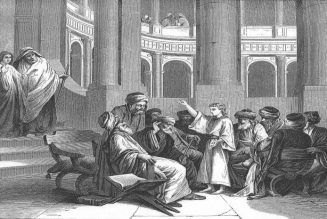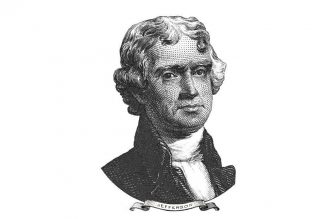
Of all the prayers prayed throughout the world, few are repeated as often as the Lord’s Prayer. We find it tucked within Jesus’s Sermon on the Mount, where he taught at length about living a life that brings glory to God. Yet despite the prayer’s popularity, it is often misunderstood and undervalued.
What Is the Lord’s Prayer?
Some believers have turned the Lord’s Prayer into something mystical, as if the words themselves hold special sway with God. For others, its statements are spoken out of habit or obligation, making it easy to daydream right through without attaching any meaning. Which, of course, is the exact opposite of his intention for Jesus said, “And when you pray, do not heap up empty phrases as the Gentiles do, for they think that they will be heard for their many words” (Matthew 6:7).
Could it be that our sovereign God, whose “divine power has given us everything we need for a godly life” (2 Peter 1:3), has gone so far as to provide the discussion points for our conversations with him? On our own, we’re incapable of knowing how to pray or even wanting to pray. We are not the source of our gumption, creativity, and initiative for “we are not sufficient of ourselves to claim anything as coming from us; our sufficiency is from God” (2 Corinthians 3:5).
Before we further consider what the Lord’s Prayer teaches us about God, let’s take time to read the words of Jesus:
“Pray then like this, ‘Our Father in heaven, hallowed be your name. Your kingdom come, your will be done, on earth as it is in heaven. Give us this day our daily bread, and forgive us our debts, as we also have forgiven our debtors. And lead us not into temptation, but deliver us from evil.’” Matthew 6:9-13 (ESV)
What Does the Lord’s Prayer Teach Us about God?
1. God wants us to call him Father.
Right after Jesus said, “Pray then like this,” he spoke two words—“Our Father”—that point to God’s warm, personal, and authoritative position in the disciples’ lives—and in our lives.
He is our Father and we are his children, for we “have received the Spirit of adoption as sons, by whom we cry, ‘Abba, Father’” (Romans 8:15). And just so there’s no confusion—or better yet, no comparison between God and earthly fathers—he makes an important distinction: “Our Father in heaven” (Matthew 6:9 ESV, emphasis added).
2. God’s name is deserving of the highest honor.
Not only is our Father holy—unique, set apart, superior—we must proclaim, “hallowed be your name,” for he is worthy “to receive glory and honor and power” (Revelation 4:11).
We want the world to know how refreshingly different he is, how nothing on earth satisfies like him, understands like him, forgives like him, and frees like him.
“There is no one holy like the Lord; there is no one besides you; there is no Rock like our God”(1 Samuel 2:2).
3. God wants to reign in our hearts and lives.
Jesus reminds us to seek God’s plan, not ours, and to do his will, not ours. He wants us to pray:
“Lord, your plans, your way, your everything are best for me,” not “This is what I want you to do, God; this is how I see it.”
Think of the harmful relationships that were avoided, dead-end jobs that were bypassed, and damaging words that were held back because of the grace given to us to say, “Your kingdom come, your will be done.”
4. God wants us to depend on him for everything.
For every infant crying to be held, 5-year-old needing new shoes, and teenager looking for encouragement, more often than not, a parent is there to meet the need.
Matthew 7:11 says, “If you who are evil know how to give good gifts to your children, how much more will your heavenly father give good gifts to those who ask?” But beyond asking for earthly provision, he ultimately wants us to find noursishment and fulfillment in him alone.
5. God alone can forgive sin and remove guilt.
C.S. Lewis was once asked this question at a seminar: “What is found in Christianity which is not found in any other religion?” He replied, “That’s simple: the forgiveness of sin.” We may find temporary comfort in positive thinking, but nothing wipes a slate clean like a God who has the power to remove sin “as far as the east is from the west” (Psalm 103:12).
6. God alone protects us from temptation and the enemy.
Of all the places Jesus leads us—“beside quiet waters” (Psalm 23:2), “on a level path” (Psalm 27:11), “the way [we] should go” (Isaiah 48:17)—leading us “into temptation” is not one of them. He does the opposite; he helps us achieve victory over sin and the evil one, for he “disarmed the powers and authorities” and “made a public spectacle of them, triumphing over them by the cross” (Colossians 2:15).
Molly Parker is a freelance copywriter and content editor whose passion is helping clients craft engaging, personality-packed content. In addition to finding beauty in the way God’s redemptive plan is woven throughout Scripture, she adores imaginative story lines, catchy phrasing, and sentence structure (just watch how her eyes twinkle when she mulls over comma placements). Molly calls California home with her grown-up kids, hunky husband, and sassy cat. Visit her at www.mollyjeanparker.com.
Photo Credit: Unsplash









